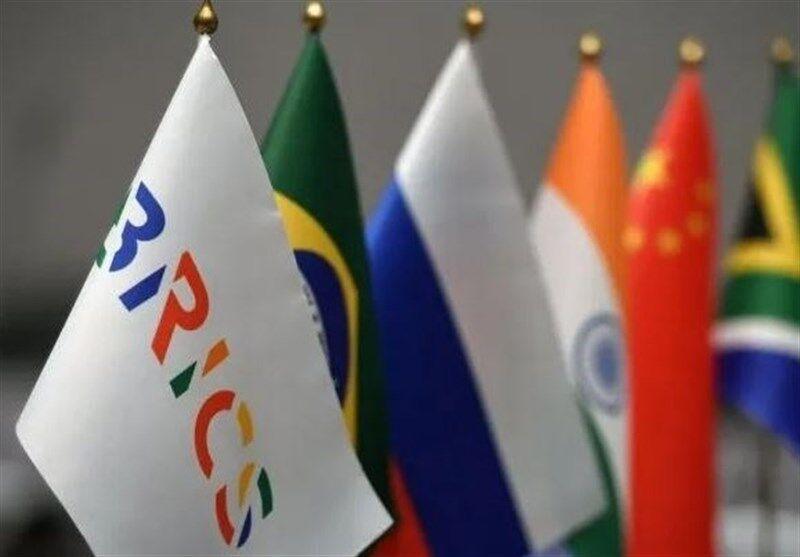In an interview with the website of the Strategic Council on Foreign Relations, regarding Saudi Arabia’s participation in the BRICS summit in South Africa and the country’s endeavor to become a member of the Development Bank affiliated to BRICS, Amin Parto stated: The BRICS group includes five large emerging economies, namely Brazil, China, India, South Africa and Russia, and membership of Saudi Arabia in that group is important.
He added: The BRICS New Development Bank, headquartered in Shanghai, China, is a multinational bank financing public or private infrastructure projects through loans, equity participation, and guarantees, which should support projects and sustainable development in member countries. In addition to the five leading countries, the United Arab Emirates, Uruguay, and Bangladesh are also members of this bank, and now Saudi Arabia is also trying to join it. Of course, the bank’s board of directors has also agreed with Argentina’s membership, and Egypt is one step away from entering it.
The Institute of Strategic Studies faculty member said that the BRICS member countries now have 40 percent of the world’s population and a quarter of the world’s gross domestic product. He added: Saudi Arabia is the largest Middle Eastern partner of this group and has extensive trade relations with the BRICS member countries, Saudi Arabia’s total bilateral trade with the countries of this group increased from 81 billion dollars in 2017 to 128 billion dollars in 2021, and it is said that this figure exceeded 160 billion dollars in 2022.
Parto added: Considering that members of this bank can use their national currencies for commercial transactions, joining the BRICS New Development Bank will reduce the pressure of finding US dollars to finance the imports of countries from their government budgets and in line with overcoming price hikes, inflation and a severe dollar shortage will help them. In addition, in 2022, Putin stated at the BRICS summit that the BRICS countries will launch a new global reserve currency consisting of a basket of BRICS currencies.
He pointed to the published news that Saudi Arabia is negotiating with China to use the yuan for their payments. While explaining the numerous and severe obstacles facing countries in reducing the use of the dollar, he continued: Saudi Arabia’s effort to get closer and cooperate with BRICS is a continuation of the policy of distancing from the US. Riyadh is still critical of the approach of Washington and Brussels towards itself, especially concerning the sanctions and pressures it has experienced, and has shown that it can take steps independently to get closer to its rivals.
The expert on Saudi issues stating that Riyadh does not like to give vast amounts of free money to countries like Pakistan, Jordan, Sudan, Egypt, and other countries and that the era of blank checks signed by Saudi Arabia for them is over, said: That country is after the fact that in case there is going to be a help, it should come back with a return on investment. For this reason, it enters into financing reliable projects that can increase its influence and funds in cooperation with some countries such as China. Even in countries with small economies that have experienced debt defaults, it only promotes financing small and medium-sized projects with sufficient financial guarantees.
According to Parto, Saudi Arabia has changed its playing style and has shown that it will stay on the past path in response to the political pressures of the West against it. However, it seems this is a tactical move and will continue this way when the Democrats are in office in the US. Riyadh knows that once the war in Ukraine ends and the West overcomes the energy crisis, the past pressures against Saudi Arabia will begin again. Therefore, it tries to use this opportunity to solve some of its regional and international issues and change the equations by joining international organizations and cooperation.
Recalling the historical and strategic ties between Saudi Arabia and the US and the Western military and security infrastructure of Saudi Arabia, he considered some of Riyadh’s actions as temporary and aimed at creating a balance and added: Saudi Arabia learned that due to the specific political system of the US, this country is not going to solve all its problems and may even cause significant problems for him. Henry Kissinger would say that if countries are enemies of the US, their governments will live longer than their allies! Now Saudi Arabia has concluded that it could sooner solve some of its problems.
Parto added: Saudi Arabia is now trying to solve its problems without the mediation of the United States and by playing an active role, but at the same time, there has not been a revolution in that country that we expect it to distance itself from the United States in general and only move with China in close cooperation. Now, Saudi Arabia has made the economy its main priority to neutralize political pressures against itself.
He considered the efforts to cooperate with international economic groups and organizations in this direction. He said: Saudi Arabia, like China and Russia, is not seeking to create a new order or shape the Eastern Bloc against the Western Bloc, rather it is trying to reach this position so that the US and the West look at it as a great weight and the US will also need Saudi Arabia.










0 Comments